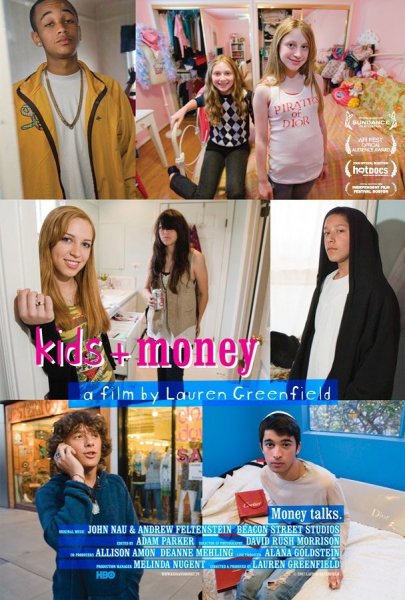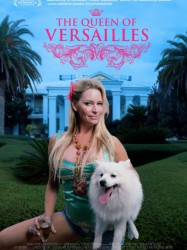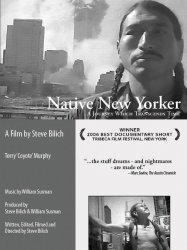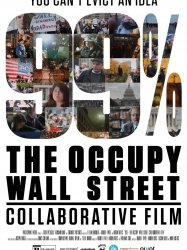Kids + Money is a american film of genre Documentary directed by Lauren Greenfield released in USA on 15 january 2008
Kids + Money (2008)

If you like this film, let us know!
Released in USA 15 january 2008
Length 32minutes
Directed by Lauren Greenfield
OriginUSA
Genres Documentary
Themes Films about children, Documentary films about politics, Documentary films about cities, Political films
Rating73%










The 2008 cinéma vérité documentary film, kids + money, was directed by photographer/filmmaker Lauren Greenfield and produced by Evergreen Pictures (founded by Frank Evers (CEO). The 32 minute film includes interviews with Los Angeles teenagers on the subject of money and how it affects their lives. HBO licensed North American broadcast rights to "kids + money", and the film has been distributed to major broadcasters and cable networks internationally. An educational DVD is being distributed by Bullfrog Films.
The characters in the film are: 16-year-old Gabby, for whom shopping is a hobby and fashion a means of self-expression; 17-year-old Sean Michael, from a middle-class family who has to work to support his shopping habits; 17-year-old Emmanuel, who discusses his relationship to money and how he fits in at his school, Harvard-Westlake; Matthew, a child actor; and 17-year-old Zoie, who lives with her parents in a small one-bedroom apartment.
"kids + money", was selected as one of the top five nonfiction shorts in the world by Cinema Eye Honors 2009. The short also won the Audience Award for Best Short Film at the AFI Film Festival 2007, the Michael Moore Award for Best Documentary Film at the 2008 Ann Arbor Film Festival, the Gold Plaque, Documentary:Social/Political from The Hugo Television Awards 2008, and Best Documentary Short at Kids First Film Festival 2008. "kids + money" was also selected into the Official Shorts Program at the Sundance Film Festival (January 2008).
Comments
Leave comment :
Suggestions of similar film to Kids + Money
There are 1 films with the same director, 8965 with the same cinematographic genres, 10101 films with the same themes (including 0 films with the same 4 themes than Kids + Money), to have finally 70 suggestions of similar films.If you liked Kids + Money, you will probably like those similar films :

The Queen of Versailles (2012)
, 1h40Directed by Lauren Greenfield
Origin USA
Genres Documentary
Themes Documentary films about politics, Political films
Rating70%





David Siegel is the wealthy owner of Westgate Resorts, a timeshare company in Florida. His wife Jackie Siegel, thirty years his junior, is the 1993 winner of the Mrs. Florida pageant and has a computer technology engineering degree. They begin construction on the Versailles house, a mansion modeled on the Palace of Versailles. Located on the outskirts of Orlando, it would be one of the largest single-family detached homes in the United States if completed (the largest being the Biltmore Estate at 178,926 square feet).

Cairo Drive (2013)
, 1h19Genres Documentary
Themes Transport films, Documentary films about historical events, Documentary films about politics, Documentary films about technology, Documentary films about cities, Political films
Rating74%





The film begins in 2009 and opens with aerial shots of Cairo's geometrical gridlock, while Handel's Water Music plays seamlessly in the background. The serenity is quickly broken, however, by a series of ground-level shots of bumper to bumper traffic, shouting taxi drivers, and an endless symphony of car horns. Amidst this mélange of 14 million vehicles, it appears that not even the traffic police understand how it all works. Yet through a series of comical behind the wheel interviews, it becomes clear that the array of sounds and gestures represents an ongoing dialogue between the city's 20 million residents. However, the film also touches upon the city's darker side. Corruption is rampant and despite residents' crafty work-arounds, the situation is without question out of control and getting worse. One resident describes crossing Cario's streets, many of which have eight or more "lanes", as a giant game of Frogger. A more poignant moment comes when a long-time American resident of Cairo recounts how his daughter, 18, was struck and killed by a bus.

Native New Yorker (2005)
, 13minutesOrigin USA
Genres Documentary
Themes Films based on the September 11 attacks, Environmental films, Films about religion, Films about terrorism, Transport films, Aviation films, Documentary films about law, Documentary films about war, Documentary films about historical events, Documentary films about politics, Documentary films about religion, Documentary films about technology, Documentary films about terrorism, Documentary films about cities, Political films, Films about Islam, Disaster films, Films about aviation accidents or incidents, Films about hijackings
Rating80%






Prisoners of a White God (2007)
, 51minutesGenres Documentary
Themes Films about education, Films about children, Films about slavery, Films about religion, Films about sexuality, Erotic films, Films about prostitution, Documentary films about law, Documentaire sur une personnalité, Documentary films about politics, Documentary films about prostitution, Documentary films about religion, Documentary films about child abuse, Political films, Films about child abuse

Unfair Dealing (2008)
Origin Canada
Genres Documentary
Themes Films about terrorism, Documentary films about law, Documentary films about war, Documentary films about historical events, Documentary films about politics, Documentary films about terrorism, Documentary films about cities, Political films

Children of the Secret State (2001)
Origin United-kingdom
Genres Documentary
Themes Films about children, Documentaire sur une personnalité, Documentary films about politics, Political films
Rating74%






Confrontation at Concordia (2003)
Origin Canada
Genres Documentary
Themes Films set in Africa, Films about religion, Documentary films about law, Documentary films about war, Documentary films about historical events, Documentaire sur une personnalité, Documentary films about politics, Documentary films about religion, Documentary films about cities, Political films, Films about Jews and Judaism
The documentary opens with scenes of the violence at the event, depicting fighting between protesters and Jewish students attempting to enter the venue. This is followed by an interview with student Samir Elitrosh, a leader of the Solidarity for Palestinian Human Rights and the leader of anti-Israel violence who was later suspended. It also features interviews with Concordia's Hillel president Yoni Petel and Concordia rector Frederick Lowy, and concludes with a discussion of what it sees as the growing trend of anti-Israel activities on North American campuses.

Origin USA
Genres Documentary, Crime
Themes Documentary films about historical events, Documentary films about politics, Documentary films about cities, Political films
Rating62%





99 cinéastes américains analysent le mouvement "Occupy Wall Street" contre le capitalisme financier : participants, soutiens, opposants sont interrogés sur sa genèse.

Berkeley in the Sixties (1990)
, 1h58Origin USA
Genres Documentary
Themes Documentary films about historical events, Documentary films about politics, Documentary films about cities, Political films
Rating73%






Directed by Gregory Allyn Palast
Origin USA
Genres Documentary
Themes Documentary films about historical events, Documentary films about politics, Documentary films about cities, Political films, Disaster films
Rating65%





The film begins with an August 21, 2006 White House press conference from President George W. Bush in which he reiterates his commitment to help the city recover.
 Connection
Connection